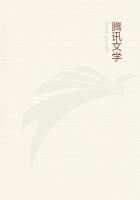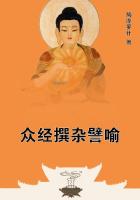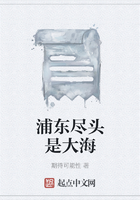"Thus civilisation and mechanical progress advanced hand in hand, each developing and being developed by the other, the earliest accidental use of the stick having set the ball rolling, and the prospect of advantage keeping it in motion. In fact, machines are to be regarded as the mode of development by which human organism is now especially advancing, every past invention being an addition to the resources of the human body. Even community of limbs is thus rendered possible to those who have so much community of soul as to own money enough to pay a railway fare; for a train is only a seven-leagued foot that five hundred may own at once."The one serious danger which this writer apprehended was that the machines would so equalise men's powers, and so lessen the severity of competition, that many persons of inferior physique would escape detection and transmit their inferiority to their descendants. He feared that the removal of the present pressure might cause a degeneracy of the human race, and indeed that the whole body might become purely rudimentary, the man himself being nothing but soul and mechanism, an intelligent but passionless principle of mechanical action.
"How greatly," he wrote, "do we not now live with our external limbs? We vary our physique with the seasons, with age, with advancing or decreasing wealth. If it is wet we are furnished with an organ commonly called an umbrella, and which is designed for the purpose of protecting our clothes or our skins from the injurious effects of rain. Man has now many extra-corporeal members, which are of more importance to him than a good deal of his hair, or at any rate than his whiskers. His memory goes in his pocket-book.
He becomes more and more complex as he grows older; he will then be seen with see-engines, or perhaps with artificial teeth and hair: if he be a really well-developed specimen of his race, he will be furnished with a large box upon wheels, two horses, and a coachman."It was this writer who originated the custom of classifying men by their horse-power, and who divided them into genera, species, varieties, and subvarieties, giving them names from the hypothetical language which expressed the number of limbs which they could command at any moment. He showed that men became more highly and delicately organised the more nearly they approached the summit of opulence, and that none but millionaires possessed the full complement of limbs with which mankind could become incorporate.
"Those mighty organisms," he continued, "our leading bankers and merchants, speak to their congeners through the length and breadth of the land in a second of time; their rich and subtle souls can defy all material impediment, whereas the souls of the poor are clogged and hampered by matter, which sticks fast about them as treacle to the wings of a fly, or as one struggling in a quicksand: their dull ears must take days or weeks to hear what another would tell them from a distance, instead of hearing it in a second as is done by the more highly organised classes. Who shall deny that one who can tack on a special train to his identity, and go wheresoever he will whensoever he pleases, is more highly organised than he who, should he wish for the same power, might wish for the wings of a bird with an equal chance of getting them; and whose legs are his only means of locomotion? That old philosophic enemy, matter, the inherently and essentially evil, still hangs about the neck of the poor and strangles him: but to the rich, matter is immaterial; the elaborate organisation of his extra-corporeal system has freed his soul.
"This is the secret of the homage which we see rich men receive from those who are poorer than themselves: it would be a grave error to suppose that this deference proceeds from motives which we need be ashamed of: it is the natural respect which all living creatures pay to those whom they recognise as higher than themselves in the scale of animal life, and is analogous to the veneration which a dog feels for man. Among savage races it is deemed highly honourable to be the possessor of a gun, and throughout all known time there has been a feeling that those who are worth most are the worthiest."And so he went on at considerable length, attempting to show what changes in the distribution of animal and vegetable life throughout the kingdom had been caused by this and that of man's inventions, and in what way each was connected with the moral and intellectual development of the human species: he even allotted to some the share which they had had in the creation and modification of man's body, and that which they would hereafter have in its destruction;but the other writer was considered to have the best of it, and in the end succeeded in destroying all the inventions that had been discovered for the preceding 271 years, a period which was agreed upon by all parties after several years of wrangling as to whether a certain kind of mangle which was much in use among washerwomen should be saved or no. It was at last ruled to be dangerous, and was just excluded by the limit of 271 years. Then came the reactionary civil wars which nearly ruined the country, but which it would be beyond my present scope to describe.














